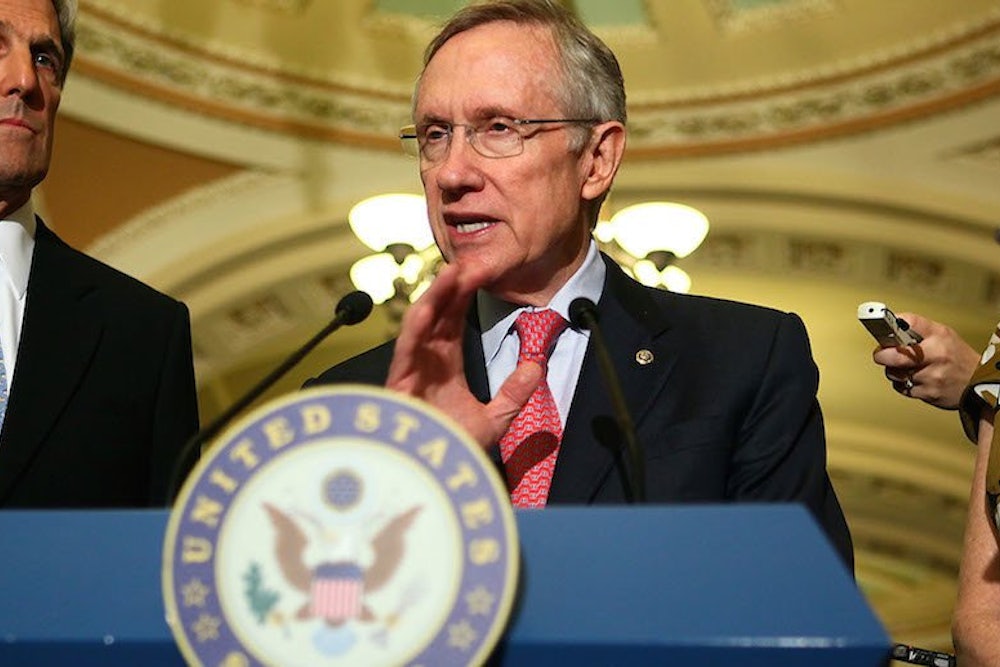The 2016 election is just getting started, but environmentalists already are counting losses, as longtime allies announce they won't seek reelection. That includes Harry Reid, who last week said he will retire in 2016 after 30 years in the Senate.
A flood of statements from environmental groups marked Reid’s conservation, clean energy, and climate leadership. “Senator Reid has been instrumental in moving Nevada beyond coal,” the Sierra Club said, citing Reid’s work against nuclear waste at Yucca Mountain. “Nothing has been more reassuring than to have Sen. Reid in the congressional boxing ring when health and the environment are at stake,” Natural Resources Defense Council wrote. Even the Energy Secretary put out a statement commending Reid’s commitment to solar and geothermal energy. Reid regularly used his platform to call out the fossil fuel industry's sway over politics (by name-calling the Koch brothers) and has blocked legislation that would have hurt the president's climate change agenda.
Reid's departure follows that of other congressional environmentalists. In January, California's Barbara Boxer, chair of the Senate Environmental and Public Works Committee for eight years, announced her retirement. And at the end of last year, the prolific Henry Waxman, who helped write the expanded Clean Air Act of 1990, retired after 40 years in the House of Representatives.
Fortunately, Democrats have a deep bench of politicians who have shown leadership on climate and environmental issues. R.L. Miller—founder of the super PAC Climate Hawks Vote to elect climate leaders—pointed to a younger generation of leaders emerging, including Senators Brian Schatz of Hawaii, Jeff Merkley of Oregon, Chris Murphy of Connecticut, and Maria Cantwell of Washington. The list goes on to include longtime climate change advocates: Ed Markey jumped to the Senate after developing a reputation for his climate leadership in the House, and Sheldon Whitehouse has given 94 speeches urging Congress that it is “time to wake up"on climate change.
“The generational shift is going to end up as a positive for climate action,” Miller said. One way new leaders can prove effective is reframing climate change as economic, not merely environmental. The old school of thought was to frame climate change as a subset of other conservation issues. But treating climate as only a type of environmental problem makes it hard to elevate it as a top issue Congress should address, when it affects national security and business, as well.
Environmentalists might also benefit from progressives taking over a few retiring senators’ seats. Senator Barbara Mikulski of Maryland has also announced she will retire, and the hope is that one of her replacements, possibly primary candidates Chris Van Hollen and Donna Edwards, might prioritize climate change where Mikulski didn't. “Both Van Hollen and Edwards are strong on climate action, and either one of them will be a huge upgrade from Mikulski, who has been a fierce advocate on a lot of things but climate isn't one of them,” Miller said.
